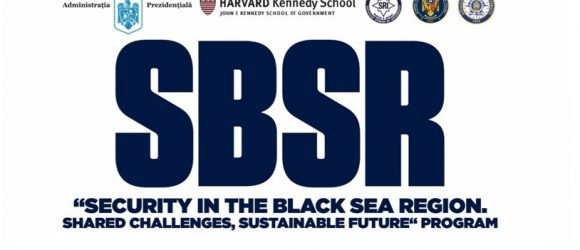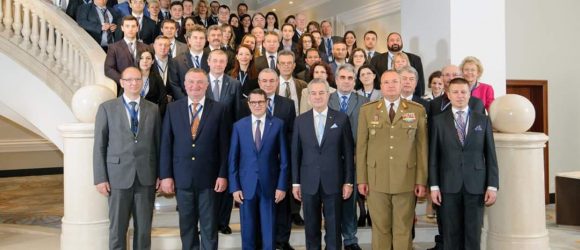The completion of the fourth edition of the international training program SBSR
“Mihai Viteazul” National Intelligence Academy is proud to announce the end of the fourth edition of the international training program “Security in the Black Sea Region. Shared challenges, Sustainable future”, organized in partnership with Harvard University and the National Intelligence University (US), under the auspices of the Romanian Presidential Administration. This year, we celebrated 20 years of international and multilateral training dedicate to the Black Sea region, for SBSR program has taken over and developed the philosophy, mission and objectives of the Black Sea Security regional program initiated by Harvard University.
The lectures, the debates as well as the cultural and social events took place in Bucharest from May 28th to June 2nd, 2017, with more than 70 participants from 14 countries from the Black Sea region, as well as from partner countries with an interest in the area. Representatives of the European and NATO forums also accepted our invitation to take part in the program, bringing complementary perspectives to the table.
The themes addressed were presented by renowned experts within six panels and later debated and deepened in six exercise sessions. The exercises were organized in an academic, interactive and dynamic format, with small multinational teams acting as promoters of different points of view and approaches. The themes discussed were:
- (Dis)Continuities in the Black Sea Region. Power projection, attribution and control;
- Rethinking strategies for peace building;
- New ecologies of conflict – what’s at stake?;
- Democracy – defining and refining the practice of community;
- Representations of majorities, minorities and identity politics.The narrative and the secretive;
- Performing identities and communities – whose story the (new) media tells.
The dynamic format gave researchers, policymakers and practitioners the proper framework for authentic communication, but also for creating a sustainable vision based on the principle of common welfare in the region. The challenges of the exercise sessions, which involved the formulation of policy recommendations, have been overcome by developing strategies and shaping integrated trans-disciplinary visions on the discussed topics.
The main speakers, together with all the participants, are now part of a distinct community of alumni and members of a platform where ideas are discussed, strategies are created and pragmatic innovation is encouraged. Together, we have created and consolidated the next generation of experts and practitioners who share a common vision on the development of the Black Sea region.
We have extracted brief opinions from the presentations of our experts and we wish to share these with those interested in the development of the Black Sea region, or in matters of intelligence, security or international relations.
Critical times require like-minded partners.
Alexandru Victor Micula, State Secretary
for political analysis and Parliament relation (Ministry of Foreign Affairs)
NATO considers the Black Sea Region a very strategic area for the security of the Alliance.
General Nicolae-Ionel CIUCĂ, the Chief of Staff of the Ministery of National Defence
NATO’s focus on Black Sea security evolved from immediate response, after Crimea, to enduring stance, by persistent ally presence.
Diego Ruiz PALMER, Special Advisor to the NATO Secretary General for Economics and Security
In order to understand digital propaganda, we should answer the following questions:
What we know of the new phenomenon?
What we’ve started to know?
What we don’t know?
What we should know?
Cornel Bjola, Associate Professor Diplomatic Studies, St. Cross College, University of Oxford
There is no East – West dichotomy. The difference is in manner, not in kind.
Cristian Norocel, Ethnic Relations and Nationalism Centre, University of Helsinki


